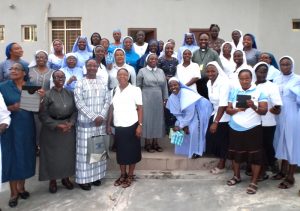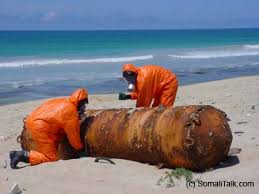Mission Statement
The Africa Faith and Justice Network, inspired by the Gospel and informed by Catholic Social Teaching, seeks to educate and advocate for just relations with Africa and to work in partnership with African peoples as they engage in the struggle for justice, peace, and the integrity of creation.
Women’s Empowerment
When African women galvanize for collective action they bring about significant socioeconomic and political change. African women religious have played a key role in social change, in building communities throughout Africa, especially through education, healthcare, and social services to the disadvantaged and vulnerable populations whom are often neglected by the government. AFJN is mobilizing African women religious towards changing the structures that perpetuate poverty and oppression; working with them to become a formidable force for addressing the cur-rent socioeconomic and political ills in Africa.
Just Governance
Governance is a sacred responsibility entrusted to those in leader-ship. Leaders must safeguard just governance that upholds the common good, guarantees peoples’ rights, promotes subsidiarity, ensures the rule of law and equitable distribution of resources.
Failure to do so creates a culture of impunity, violations of human rights, lack of accountability, and corruption. African Bishops have identified corruption as Africa’s major problem and describe it as a “cancer that stands in the way of Africa’s development.” AFJN works to empower communities in Africa to tackle these problems and engages the United States government and the public in addressing these issues.
Toxic Dumping
Some African countries for very little money are accepting toxic waste from developed nations, some as a deal for foreign assistance. These hazardous chemicals are an ever growing and lucrative business, with serious health implications and environmental impacts on affected communities. Such is the case with Trafigura, a Dutch company that dumped toxic waste in Abidjan Ivory Cost resulting in death and disease for the local communities. AFJN advocates for robust legislations on dumping of nuclear and industrial waste in African countries and educates local communities about the impact of toxic waste on their health and the environment.
Land Grabbing
Land grabbing, the large-scale acquisition of land in developing countries by foreign or local companies or individuals, often without due process, is a serious problem in Africa. Over 50 % of total land grabbed worldwide is in Africa. As a result, communities have been displaced, their source of livelihoods taken away. AFJN organizes workshops and conferences, town hall meetings and radio programs to educate local communities about land grabbing, supports small-scale farmers and responsible investments in Africa’s agricultural sector, and advocates for laws to prevent and stop land grabs.
Food System
In an effort to address food short-age, African leaders are turning to multi-national corporations for large scale food production, and enacting laws that give sweeping concessions to introducing Genetically Modified Organisms (GMO) on the continent. But GMOs:
- Create seed monopoly and dependency on corporations
- Threaten African small scale farmers
- Control local agricultural economy and impact local agriculture
- Shock the ecological system
- Have health implications yet to be fully determined
AFJN creates awareness on these issues and cautions against GMOs.
To print this in a brochure format click here.




